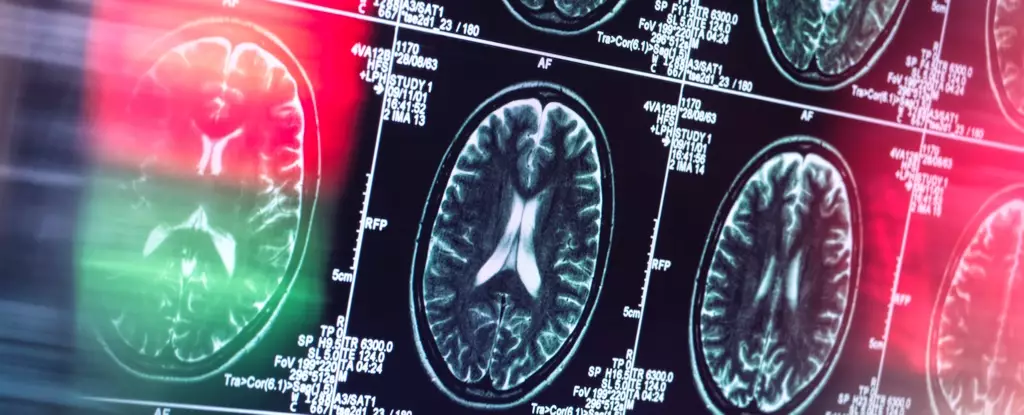Psychosis is a condition that involves disconnections from reality, such as hallucinations and delusions. It can occur independently or as a part of disorders like schizophrenia and bipolar disorder. Researchers at Stanford University have identified dysfunctions in specific brain systems that play a role in psychosis. Understanding these brain systems and how they contribute to symptoms could lead to more effective treatments and interventions for psychosis and related mental health conditions.
A team of researchers from Stanford University conducted a study on 445 people with various conditions including autism, ADHD, early psychosis, and 22q11.2 deletion syndrome, as well as 411 healthy individuals as controls. By analyzing brain scans using a machine learning algorithm, the researchers identified differences in brain function between the groups. The study focused on the anterior insula, a key part of the salience network filter that directs attention, and the ventral striatum and related dopamine-driven pathways that control reward-seeking behavior.
The researchers found significant differences in brain function related to information filtering and reward prediction in individuals with 22q11.2 deletion syndrome, psychosis, and those with psychosis of unknown origin. The study supports the idea that the salience network plays a role in psychosis and provides insights into the development and progression of schizophrenia. These findings suggest that psychosis has identifiable and consistent brain signatures that can help in understanding the condition and developing targeted treatments.
The identification of specific brain systems involved in psychosis opens up new possibilities for treatment. Current approaches, such as transcranial magnetic stimulation and focused ultrasound, could be adapted to target the areas of the brain associated with information filtering and reward prediction. This targeted approach could be particularly beneficial for young people at risk of psychosis, allowing for more precise interventions and monitoring of treatment effects.
One of the challenges in treating psychosis is the stigma associated with the condition. People experiencing psychosis may feel isolated and misunderstood due to the nature of their symptoms. The researchers emphasize the importance of approaching individuals with psychosis with compassion and reducing stigma surrounding the condition. By increasing awareness and support for those affected by psychosis, we can create a more empathetic and inclusive environment for those in need.
The study from Stanford University highlights the complex relationship between brain function and psychosis. By identifying specific brain systems involved in the condition, researchers have laid the groundwork for more targeted and effective treatments. The findings also underscore the importance of understanding and supporting individuals with psychosis in order to promote mental health and well-being.



Leave a Reply